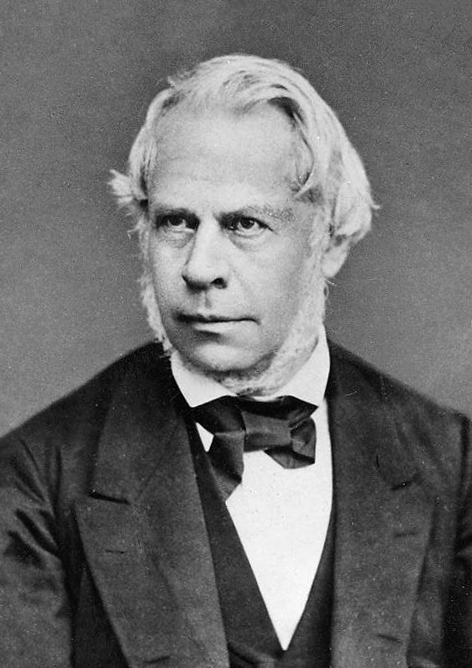My roommate at Harvard College was Tom Baum, now a Hollywood screenwriter. Tom's full name is Thomas Henle Baum, his middle name a reference to a German physician ancestor for whom the 'Loop of Henle' in the kidney had been named. Other than this iconic portion of kidney tubing, Tom knew very little about his Dr. Henle ancestor.
Last year I was a single book away from completing my full set of Darwin Correspondence. In addition to those books I had received as a member of the Darwin Correspondence Project's Advisory Committee, I had been purchasing earlier volumes from bookdealers when available at reasonable prices. However, through some bookseller's negligence, or possibly my own, I mistakenly found myself with two copies of Part II of Volume 16 (July - December 1868) and no copy of Part I (January - June 1868). It was this missing Part I that I needed to complete my set.
Since it seemed overly expensive and wasteful to spend $300+ purchasing an additional Volume 16, Parts I and II (they were only sold together), I appealed to Cambridge University Press to kindly consider exchanging my extra Part II (which was in mint condition) for any Part I they might have lying around their warehouse. I offered to pay any price differential, the shipping cost each way, and such restocking or other fee they might wish to charge me.
There followed a lengthy, bureaucratic and in the end fairly humorous email correspondence - which I happened to share with my professional writer friend Tom -- in which Cambridge University Press adamantly refused any exchange but then, after I had entirely given up, they very kindly reversed themselves and came to the unexpected solution that if I would ship them both my copies of Part II, they would then send me a Part I and Part II.
A couple of weeks later I had in my hands my long-sought Volume 16, Part I. While I certainly cannot say I read every letter, I like to take an hour or two browsing through each newly-received volume, stopping at the letters that catch my interest. And as I did so, my eyes fell on a 10 June 1868 Darwin letter to Huxley in which Darwin complains about the difficulties of reading Henle's German. In fact, Darwin writes, Henle's German "troubles the peace of my entire family."
My recent sharing of emails with Tom still fresh in my mind, I wondered if that could be the Henle of Thomas Henle Baum. The Correspondence Project's footnote immediately seemed to confirm that it was: "CD probably refers to part of Henle, Handbuch du systematischen Anatomie des Menschen: an annotated version of volume 1, part 3, on muscles, is in [Charles Darwin's] Library."
To nail things down I immediately googled Henle's Wikipedia entry.
And there he was, imposing picture and all: Friedrich Gustav Jakob Henle, 1809-1885 [same age as Darwin], "credited with discovery of the loop of Henle in the kidney", author of the Handbook of Systematic Human Anatomy, published in three volumes 1855-1873, "remarkable not only for the fullness and minuteness of its anatomical descriptions but also for the number and excellence of illustrations with which they elucidated minute anatomy of the blood vessels, serous membranes, kidney, eye, nails, central nervous system, etc." If that were not impressive enough, Henle was also an early proponent of the germ theory of disease. And from another source I learned that Henle was Darwin's type of anatomist, finding the loop of Henle not only in humans but also in reptiles, birds and animals.
I conveyed all this to Tom, telling him how impressed I was with his Dr. Henle namesake as a leading figure in the development of modern medicine. Tom was grateful and impressed as well -- he had known practically nothing about Henle and had never even seen his Wikipedia entry. All in all, quite a fortunate coincidence that I had happened to tell Tom about my emails with Cambridge University Press in an effort to obtain my missing volume of Darwin Correspondence, and then on receiving the volume had looked through the pages with my eyes falling particularly on the letter in which Darwin complains to Huxley about reading Henle in German. Probably the type of personal or family coincidence that occasionally occurs when Brits browse through the Darwin Correspondence, but far less frequently when Americans do.
Daniel V. Grossman



